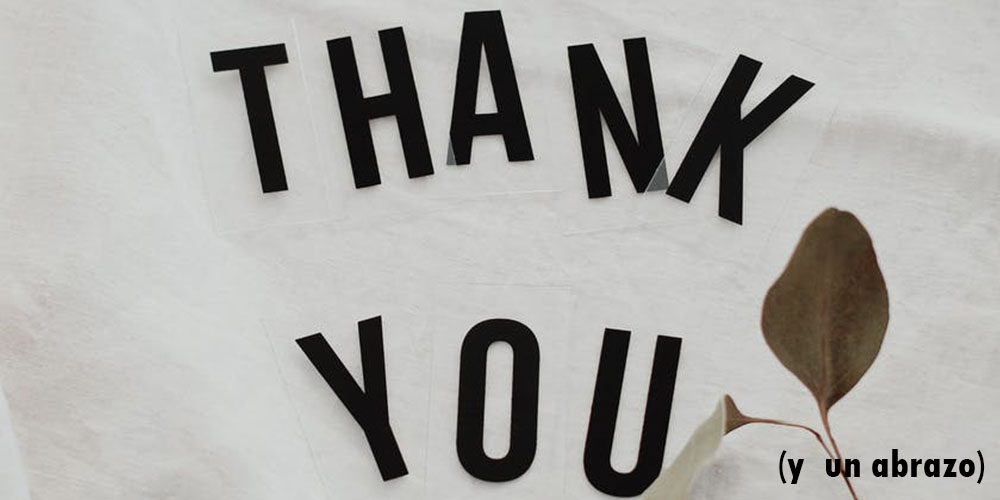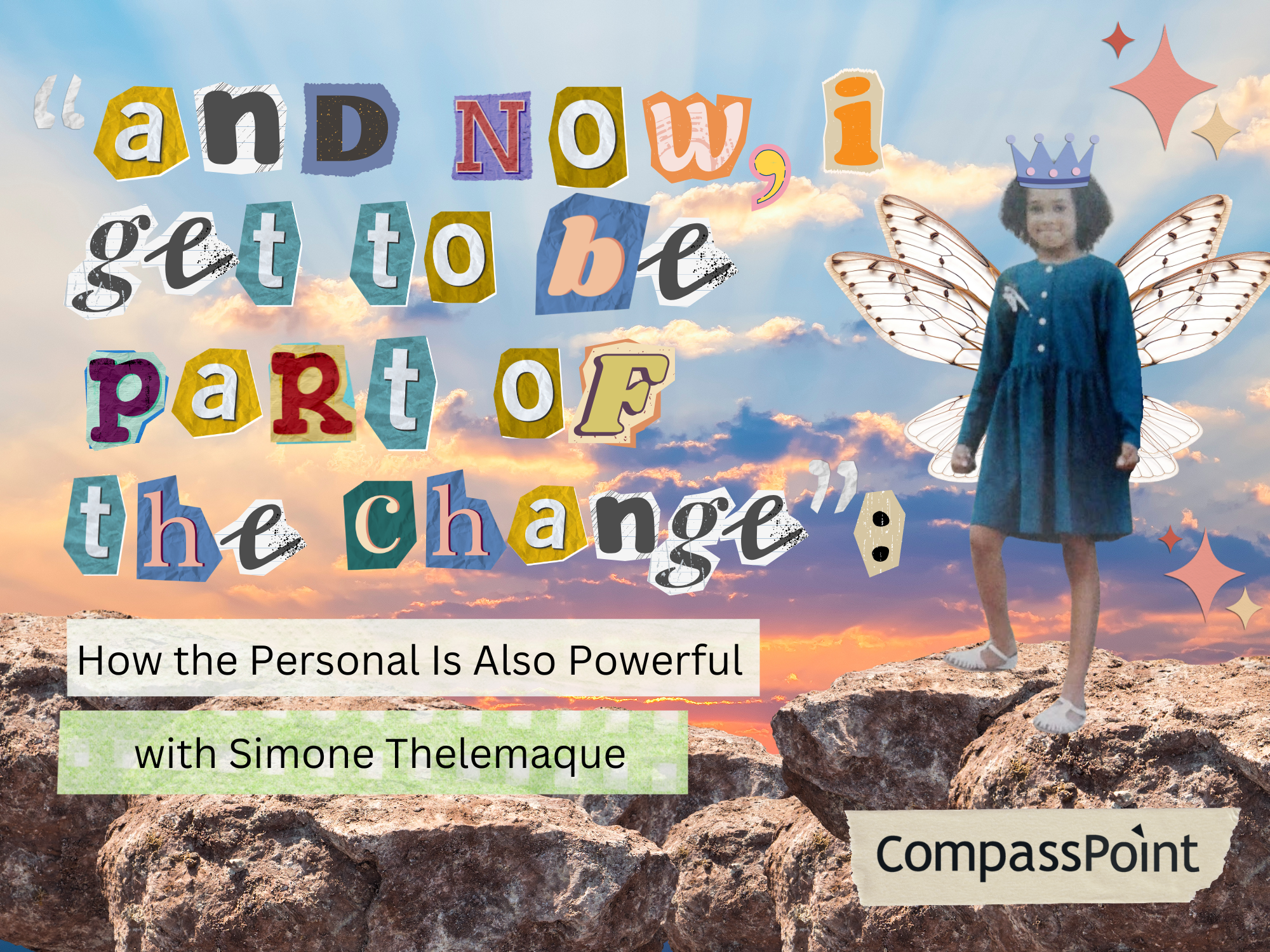[Image from Pexels.com]
A thank you, un abrazo, and some parting reflections from our previous Co-Director, Lupe Poblano.
by Lupe Poblano
Dear CompassPoint community,
Three years ago I introduced you to a very important person in my life, my abuelita Rosa. In many ways she initiated my justice journey. As I grew older, I came to understand how the systems of patriarchy, colonialism, white supremacy, and capitalism had impacted her and my family. I also came to see how her matriarchy, resistance, courage, and hope could fuel a different way of thinking, doing, and being.
Three years later, I left my role of Co-Director at CompassPoint largely because of another Rosa: my newborn second child with my partner Bekah. With an unwavering amount of clarity and purpose, I know that Rosa, and my two-year-old daughter Lucy, represent the next chapter in my justice journey. My clarity of purpose comes in understanding my role in the legacy timeline: to carry the spirit of the Ancestors to shape and change the future. If “small is all” (adrienne maree brown, Emergent Strategy), then I'm looking forward to investing more fully in my parenting to tend to my small garden of liberation, feeling secure that it has a significant contribution to the larger justice ecosystem.
Beginning a new chapter means closing the current one, and while I hold excitement for what is ahead personally, it does feel bittersweet to leave CompassPoint. The people I have met within the CompassPoint community over the last seven years—including you right now reading this note—have made an indelible impact on my life. I won’t mention any particular names because I don’t want this to become an Academy Awards speech (nor do I want to leave anyone out), so I will share that I have such deep love and admiration for the brilliant CompassPoint team who have worked here during the last seven years to build an organization that continues to be relevant and authentic; appreciation for a Board that is ridiculously generous in sharing their time, treasure, and talent; and gratitude for cohort communities (from the Bay to LA to New Orleans) that have inspired me to be the best version of myself while challenging me to be in relationship with my own trauma.
I'm excited for CompassPoint’s new chapter as well. Last month, we launched our inaugural B.L.A.C.K. Equity Intensive program. Along with our successful Self-Care for Black Women in Leadership program, it best exemplifies our growing principle of centering Pro-Blackness (a special acknowledgement of the leadership of spring opara, Jasmine Hall, Simone Thelemaque, Fela Thomas, Liz Derias-Tyehimba, and Kad Smith for dreaming of and creating these Pro-Black spaces). Demand for our public workshops continues to grow, and over 300 Bay Area human resources and finance professionals are connecting through our peer networks. Additionally, I’m excited about CompassPoint’s commitment to deepen our model of shared leadership at the executive level and am grateful for Liz and Shannon’s leadership overall and how they are currently navigating CompassPoint through change and transition.
Finally, as I’ve stepped away from a positional leadership role for now, I do want to share a reflection that I have been sitting with for some time. It’s a reflection and truth that I have experienced and heard from so many other BIPOC (Black, Indigenous, and People of Color) positional and executive leaders in movement spaces or organizations that are intentional about their politics and values. I am referring to spaces that genuinely strive to achieve shared leadership and craft a political and cultural identity that centers BIPOC leadership internally and externally. The truth is that being in these positional roles is extremely difficult, and many exceptional BIPOC leaders are leaving them, burned out and frustrated at absorbing the weaponized trauma and pain that can be consistently projected onto them. A quote from adrienne maree brown that resonates:
are our movements designed and practiced as places that liberate those within and without? or are we collectively creating cages, barrels, boxes…scarce domains in which no one can thrive in lifelong commitment?
are we getting stuck in regressive thinking and behavior that discourages growth, mistakes, and the hard work of holding leadership?
There are, of course, significant external challenges as a BIPOC positional leader during this time. I mean, where do I start? Beyond the global pandemic, we have capitalism, white supremacy in philanthropy, and patriarchy in the form of archaic, paternalistic governance structures that can often set up boards and staff to be adversaries instead of partners in navigating uncertainty together. All of these factors underscore the larger complexity of attempting to create a liberatory bubble within the nonprofit industrial complex.
With that said, what can make these positional roles especially difficult to grind through is when we fail to truly recognize and champion leadership within our very own organizations by putting our BIPOC leaders into the cages that adrienne marie brown talks about, and create the conditions where BIPOC folks are hesitant to step into formal leadership roles. Within mostly BIPOC spaces I’ve seen the toxicity of the Wheel of disillusionment, or when the critique of those who hold power isn’t accompanied with compassion. And I’ve observed when analysis of inter-organizational power dynamics explores only one dimension— positionality—while ignoring anti-Blackness, race, and gender (or any complexity beyond role and job title).
It’s important that we do the honest yet necessary internal work of locating each of ourselves somewhere within these habits and behaviors. We all give oxygen to them in different ways. Perhaps we turn to these behaviors because it’s how we’ve learned to survive in more toxic environments. Maybe we tend to validate and even adopt someone else’s victim/villain/hero narrative in order to show them love, or maybe we witness these problematic behaviors and do nothing to interrupt them because it would just take too much damn vulnerability and courage, and getting by is already hard enough. Regardless of where you locate yourself, we need to be able to name these behaviors in ourselves and each other with the same fierceness we do other habits of white supremacy culture.
In the end, I am so enormously grateful to CompassPoint for these last seven years, and the opportunity to be in so many spaces—within CompassPoint, in our public workshops, in our leadership cohort gatherings—where I saw BIPOC leaders tap into their immense gifts and realize that their potential is limitless.
As for you and I, I hope we can continue this conversation and dialogue in the future. I’ve been so humbled to hear from you when my writing in this forum has helped spark a needed conversation in your organizations. Feel free to hit me up on Twitter (@LupePoblano) or LinkedIn.
Un abrazo,
LP






Submit a comment